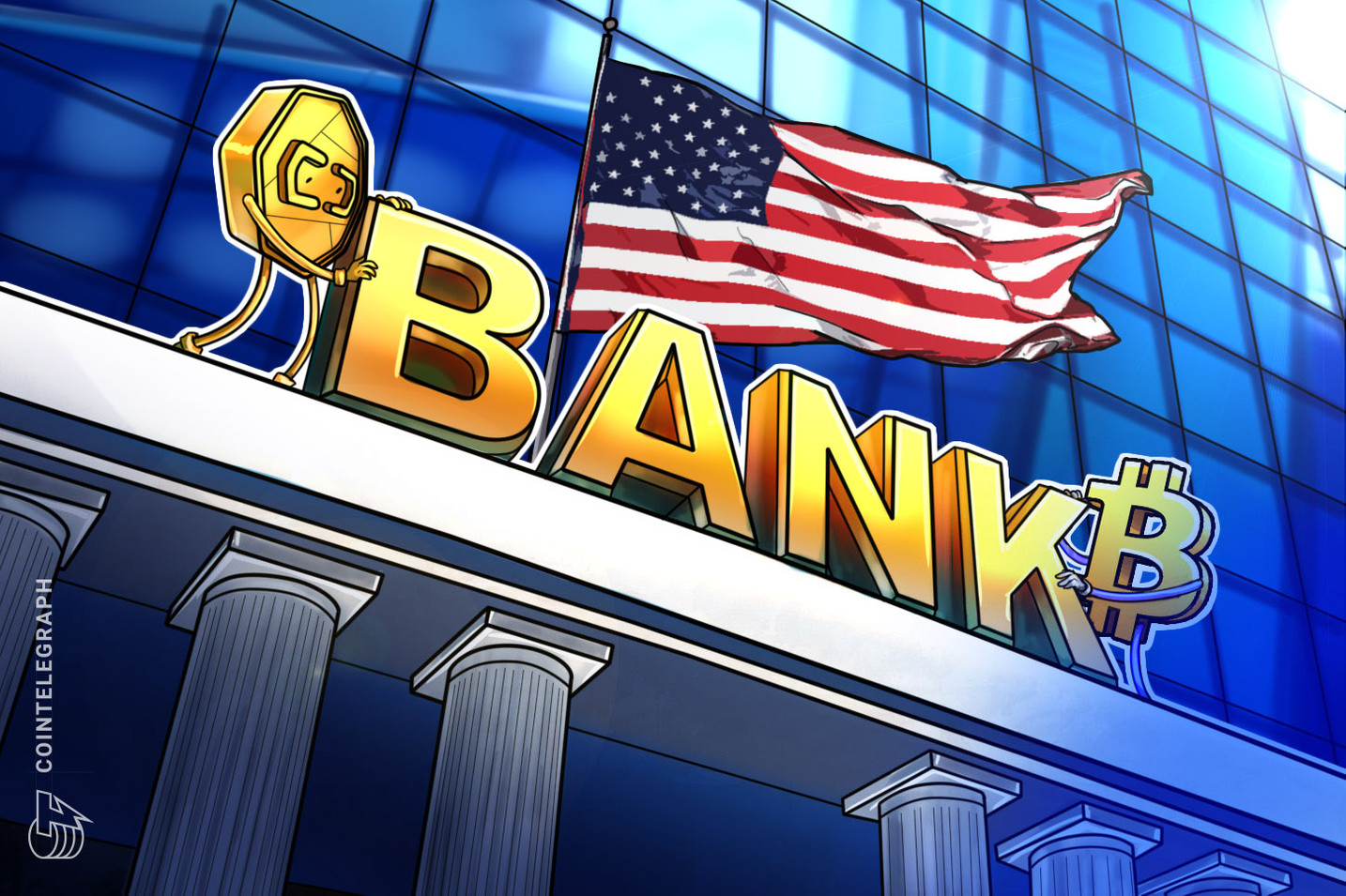Grayscale met with SEC to discuss spot Bitcoin ETF details

Grayscale executives and lawyers met with the SEC to discuss a rule change to list the Grayscale Bitcoin Trust (GBTC).
Singapore introduces five new pilots to test asset tokenization

The latest initiatives led by the Monetary Authority of Singapore aim to develop foundational capabilities to scale tokenized markets.
Big Banks, NY Fed’s Innovation Group See Merit in Digital Ledgers for Global Payments
Citigroup Inc., HSBC, BNY Mellon and other global financial giants have been experimenting with what they call a “regulated liability network” for conducting round-the-clock, wholesale payments using shared ledgers, and a paper released Thursday suggests the system has potential.
BNY Mellon Embraces Long-Term Digital Asset Initiatives Across All Lines of Business
In a dynamic move towards digital transformation, BNY Mellon, one of the oldest banks in the United States, is pushing forward with its initiatives focused on distributed ledger technology, tokenization, and digital cash.
Roman Regelman, the CEO of securities services and digital, revealed in a recent interview that the bank has been prioritizing digital assets for the past two years in response to increasing client demand.
This latest disclosure comes amid the US banking crisis and United States regulators’ continuous crackdown on the crypto industry, a sector of the global digital asset market.
Notably, yesterday, the US Securities Exchange and Commission (SEC) responded to Coinbase’s complaint saying crypto rulemaking may take years and that it is “in no rush.”
BNY Mellon Embraces Digital Asset Including Crypto?
While BNY Mellon did not explicitly mention cryptocurrencies as part of its digital asset focus, the American Banker reported on the bank’s prudent motion into the crypto-verse. CEO Robin Vince, during the bank’s first-quarter earnings call, highlighted the bank’s meticulous and methodical approach, characterizing their progress as being “exceptionally slow.”
To demonstrate its commitment to digital assets, BNY Mellon is actively pursuing three key initiatives. This includes actively expanding its services to include custody and clearing solutions for digital assets, with the aim of diversifying its offerings and accommodating a wider range of asset classes.
Regelman revealed the bank’s vision for digital assets going forward, saying that “Everything that we do, we want to do for digital assets.”
BNY Mellon is also placing significant emphasis on the adoption of blockchain technology and other innovative advancements to modernize its infrastructure. This decision is aimed at improving operational efficiency, reducing costs, and enabling real-time capabilities across the bank’s systems.
Another initiative the 240-year-old bank is planning to pursue is actively exploring the concept of tokenization as a strategy to democratize investment opportunities.
By embracing tokenization, the bank seeks to unlock new avenues for investors and enable broader access to alternative asset classes, fostering a more inclusive investment ecosystem.
Leading the Digital Transformation in Financial Services
By embracing long-term digital asset initiatives across all lines of business, BNY Mellon appears to be positioning itself as a leader in the financial industry’s digital transformation.
As the demand for digital assets such as cryptocurrencies and innovative technologies continues to rise, the bank’s strategic focus on distributed ledger technology, tokenization, and digital cash highlights its commitment to meeting the evolving needs of its clients and staying at the forefront of financial innovation.
It is worth noting that BNY Mellon’s gradual approach to the crypto realm reflects the cautious stance adopted by other traditional financial institutions.
Recently, Investment bank JPMorgan announced that it will launch trial applications on blockchain technology to offer dollar-based settlement services.
Meanwhile, following the news, BNY Mellon’s stock price hasn’t made any significant movement, however, it has recorded a few gains in the past day up by 1.3%. BNY Mellon currently trades at $40.70 at the time of writing.
Featured image from Unsplash, chart from TradingView.com
BNY Mellon Going ‘Incredibly Slow’ on Crypto Products
Bank of New York Mellon (BK) said it doesn’t consider itself a crypto bank and will continue to move slowly investing in the space during its first quarter earnings call on Tuesday.
USDC bounces back toward $1 peg after Fed announcement

Positive developments concerning Circle’s $3.3 billion worth of reserves held at Silicon Valley Bank and its new banking partners have seen USDC climb back toward its $1 peg.
A Crypto Holiday Special: Past, Present, And Future With Ex BNY Mellon David Shwed
2022 is coming to an end, and our staff at NewsBTC decided to launch this Crypto Holiday Special to provide some perspective on the crypto industry. We will talk with multiple guests to understand this year’s highs and lows for crypto.
In the spirit of Charles Dicken’s classic, “A Christmas Carol,” we’ll look into crypto from different angles, look at its possible trajectory for 2023 and find common ground amongst these different views of an industry that might support the future of finances.
Yesterday, we spoke with investment firm Blofin on their perspective on the past, present, and future of crypto. Today, we continue the series with David Shwed, former Global Head of Digital Assets Technology at BNY Mellon, the world’s largest custodian and securities services provider, and current COO at Halborn.
Shwed: “What changed was the reality that too good to be true yields are exactly that, too good to be true. The money needs to come from somewhere, and it turns out that it was coming from risk loans and other business practices that relied on the steady increase of the price of crypto (…).”
This major financial institution, along with some of the biggest banks in the U.S., Goldman Sachs, Morgan Stanley, J.P. Morgan, finally embraced cryptocurrencies in 2021 and 2022. Still, recent events in the industry might impact crypto and digital asset adoption for legacy financial institutions.
Shwed: “I haven’t seen any slowdown from TradFi when it comes to entering/expanding into the crypto markets.”
Traditional Finances (TradFi) and Crypto Finances, in their many forms (CeFi, DeFi, etc.), have been converging. Will the collapse of Three Arrows Capital (3AC) and FTX push these institutions away from crypto? What is the likeliest regulatory outlook for 2023? We asked this former BNY Mellon executive this and much more. This is what he told us:
Q: What’s the most significant difference for the crypto market today compared to Christmas 2021? Beyond the price of Bitcoin, Ethereum, and others, what changed from that moment of euphoria to today’s perpetual fear? Has there been a decline in adoption and liquidity? Are fundamentals still valid?
A: What changed was the reality that too good to be true yields are exactly that, too good to be true. The money needs to come from somewhere, and it turns out that it was coming from risk loans and other business practices that relied on the steady increase of the price of crypto. As the price fell and the loans were due, many faced liquidation of their collateral and margin calls. That being said, we are seeing adoption in many other areas besides finance. Many major retailers are also entering the ecosystem, such as Nike, Matterl, Samsung, and LVMH.
Q: What are the dominant narratives driving this change in market conditions? And what should be the narrative today? What are most people overlooking? We saw a major crypto exchange blowing up, a hedge fund thought to be untouchable, and an ecosystem that promised a financial utopia. Is Crypto still the future of finance, or should the community pursue a new vision?
A: The narrative today needs to be risk management and security. Had 3AC/Voyager/Celsius and others had more institutional risk management practices, their demise may have been avoided. The same thought goes into security. There is a fundamental difference between crypto native security vs what we see in more mature financial institutions. We need to improve both drastically in order to restore trust.
Q: If you must choose one, what do you think was a significant moment for crypto in 2022? And will the industry feel its consequences across 2023? Where do you see the industry next Christmas? Will it survive this winter? Mainstream is once again declaring the death of the industry. Will they finally get it right?
A: The most significant moment was the FTX crash. The progression of SBF from the hero who will save us all to a criminal in a matter of weeks is evidence of the lack of transparency in the ecosystem. We will certainly feel the impact as we head into 2023 . I don’t believe we’ve seen the full impact as it relates to other organizations who have some exposure to FTX or are generally over-leveraged. I believe by the end of 2023 we will be back to where we were in the beginning of 2022 in part due to the institutional/enterprise markets. I’ve heard “Crypto is dead” many times throughout the years and they’ve been wrong every time. While the current situation is much different since the price decline is a result of many systemic failures, the same can be said for many crashes observed in TradFi Wall Street, the most similar being the 2008-2009 crisis and TradFi is still alive and kicking.
Q: Traditional finances (Tradfi) and crypto are merging in many ways. Will the collapse of FTX affect this trend? And in this context, do you see regulations leaning toward adopting an approach that will halt the integration between legacy and crypto financial companies?
A: While the collapse of FTX and the resulting collateral damage has shown to have negatively impacted the crypto market, I haven’t seen any slowdown from TradFi when it comes to entering/expanding into the crypto markets. In fact, many of the G-SIBs (Globally Systemically Important Banks) that I have spoken to have not changed or altered their roadmaps as it relates to crypto. I haven’t seen any indication of regulations halting the integrations between traditional and crypto. That being said, I believe we will see sweeping regulation in the crypto markets similar in size and scope of the Dodd-Frank Act.

As of this writing, Bitcoin trades at $16,800 with sideways movement across the board. Image from Unsplash, chart from Tradingview.
Banks still show interest in digital assets and DeFi amid market chaos

Traditional financial institutions continue to demonstrate use cases for digital asset support, along with DeFi capabilities, despite current market conditions.
Crypto Biz: $470B bank enters crypto — Probably nothing, right?

Another major financial institution has signaled its intent to offer Bitcoin and Ether services to its clients.
BNY Mellon, America’s oldest bank, launches crypto services

The bank will store private keys and provide bookkeeping services equivalent to those offered to fund managers in traditional assets.
Talos raises $105M to become the latest crypto unicorn valued at $1.3B

PayPal-backed crypto firm Talos has raised fresh funding from companies like Ken Fox’s private equity firm Stripes, BNY Mellon, Citi and others.
BNY Mellon plans to launch digital asset custody platform later this year

The investment bank reportedly said it will begin with the United States and then expand worldwide based on market demand.
BNY Mellon partners with Chainalysis to track users’ crypto transactions

Bank of New York Mellon, the world’s largest custodian bank, has partnered with blockchain software firm Chainalysis to track its users’ crypto transactions.
Few calls to ‘Buy The Dip’… but uber-rich Family Offices are keen on crypto

“Often the crowd unanimously call the dip/bottom earlier than the actual dip and the real bottoms forms when the crowd least expects which is represented by low to no mentions in Buy The Dip,” K J Lanaul wrote.
Warren Buffett invests $1B in Bitcoin-friendly neobank, dumps Visa and Mastercard stocks

The “Oracle of Omaha” now has more companies in his portfolio that have direct/indirect exposure to Bitcoin and similar cryptocurrencies.
BNY Mellon joins State Street to service new crypto exchange

Traditional financial institutions like State Street and BNY Mellon continue to get involved in the fast evolving cryptocurrency space.
Major Korean Bank Set To Provide Cryptocurrency Custody Services
Woori Bank, the South Korean financial institution, enters the DACS (cryptocurrency custody services) market.
The Woori Financial Group will start offering its client cryptocurrency custody services. It is among the largest South Korean financial institutions.
Related Reading | Nifty’s Inc. Partners With Warner Bros To Roll Out A Social NFT Platform
The banking unit of the financial institution – Woori Bank will partner with the solutions provider of fintech to launch this initiative. This fintech’s solutions provider is known as Coinplug Inc.
Woori Bank Adopts Cryptocurrency
The Korean Economic Daily report states that Woori Bank is the next Bank in South Korea to join the DACS market. The institution joined Coinplug Inc, a Bitcoin-focused fintech provider, to establish a joint venture (JV).

The project name is D-Custody and will be integrated by early next week. The ownership agreement is that Woori Bank will contribute less while Coinplug becomes the key shareholder.
An official from the Woori Bank commented that digital asset custody had recorded more success among the recent services rendered by Banks in the overseas market.

Investors are in a panic as the cryptocurrency market keeps following a downtrend | Source: Crypto Total Market Cap on TradingView.com
At its core, digital asset custody allows its providers to reserve cryptocurrencies for companies and individuals in their absence.
There is now an increase in the demand for digital asset custody services in South Korea. This is because most local firms have now held and trade on different kinds of virtual currencies.
Related Reading | Binance CEO Changpeng Zhao States, “Compliance Is A Journey.”
For instance, KB Kookmin Bank, the present biggest South Bank, has joined the Digital Assets Custody Services (DACS) market. The bank entered DACS towards the end of 2020 by forming KODA (Korea Digital Asset Co).
Shinhan Bank also adopted the same idea early this year and became Korea Digital Asset Custody Co (KDAC) strategic investor.
The Expansion of Cryptocurrency Custody Services
Major banks in the US- the largest economy has also started rendering cryptocurrency custodian services, as reported recently. Cowen Inc is now marked as one of these major banks to join the trending offer.
In collaboration with Standard Custody & Trust Co., the multinational investment bank has started providing custody services called “institutional-grade.” The financial giant and $12B in AUM revealed that this innovation would be available for managers and hedge funds.
The CEO of Cowen-Jeffery Solomon reveals the decision of the Bank ‘ In no distant time, we will assist a lot more of our clients in the institution to overcome the challenges and start digital asset trading. The demand is here.
Related Reading | Russia Plans To Impound Unlawfully Acquired Cryptocurrencies
BNY Mellon–the ancient American bank, announced early this year that it would offer cryptocurrency-related services to its customers.
This New York-based institution explained that it would issue, hold and transfer BTC and other cryptos in honor of its clients in the institution.
Featured image from Pixabay, chart from TradingView.com
BNY Mellon to provide ETF services for Grayscale’s Bitcoin Trust

The new agreement further reinforces Grayscale’s commitment to converting Grayscale Bitcoin Trust into an ETF as its strategic goal.
Bitcoin volatility still a concern for CEO of BNY Mellon subsidiary

Francesca Fornasari believes that Bitcoin may not be suitable for most institutional investors.




